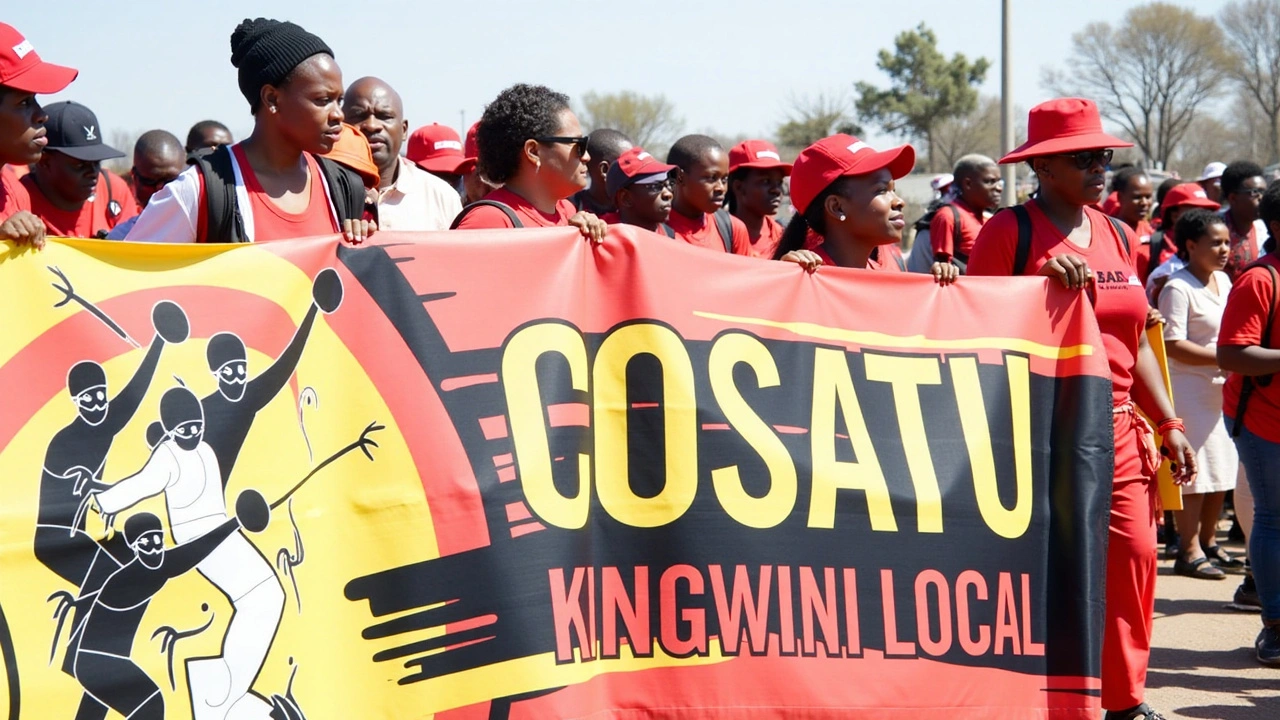South African Workers Unite for Nationwide Strike to Challenge Economic Crisis

South African Workers Mobilize Against Economic Hardships
Cosatu, the Confederation of South African Trade Unions, is pulling out all the stops by rallying workers across the nation for a significant strike against what they describe as a 'crippling economic crisis.' Scheduled for early October, this protest aims to shine a spotlight on the dire economic conditions engulfing South Africa. By calling workers to action, Cosatu endeavors to shake the foundations of the current economic policies, which they argue have consistently failed the working class.
The Root Causes: A Deepening Economic Crisis
The economic landscape in South Africa presents a grim picture characterized by mounting unemployment rates, rampant poverty, and soaring inequality. Cosatu attributes these issues to ineffective government policies, which they claim have done little to alleviate the economic suffering of millions. The union federation argues that the government's approach plays a pivotal role in sustaining these troublesome economic conditions. High unemployment rates, with millions out of work, are not just numbers; they are families struggling to make ends meet. Poverty pervades urban and rural areas alike, forcing many to live below the poverty line.
A Voice for the Workers: Cosatu's Key Demands
In response to these widespread challenges, Cosatu has articulated clear, crucial demands to the government. They are advocating for a living wage, which would allow workers to sustain a decent living standard amid rising inflation and cost of living. Job security is also paramount, as countless workers face uncertainty in the job market. Furthermore, Cosatu strongly opposes the privatization of state-owned enterprises, which they argue dismantles job security and reduces public accountability. They believe that public enterprises should prioritize public goods over profit maximization. By standing firm in these demands, Cosatu aspires to redirect the trajectory of the nation’s economic course towards a more equitable future.
Criticism of Government-Corporate Relations
Cosatu’s leadership is outspoken in its criticism of the government's alleged overly congenial relationship with big business. The federation suggests that these ties exacerbate the economic challenges, allowing corporate interest to overshadow the needs of the working population. Such a reality, they contend, distances the government from the plight of ordinary citizens. By leveraging their vast network of over 1.8 million members, Cosatu aims to compel the government to critically reassess its economic alliances and place worker interests at the helm of policy-making. The federation believes that meaningful dialogue with key stakeholders, including labor unions, can foster an economic strategy that addresses the real issues facing the populace.
Anticipation and Impact: A Nationwide Disruption
As October 7 approaches, anticipation builds regarding the impact of this impending strike. Sectors such as transport, education, and healthcare are likely to feel the effects as workers from various unions pause their daily operations in solidarity. The strike's momentum is designed not only to disrupt but to deliver a potent message: workers demand inclusion and respect in policy dialogues and a tangible commitment to change. As Cosatu calls upon all workers, regardless of their union affiliation, to participate, the organization's reach and influence stand to be tested on a monumental scale.
Towards a United Front: Solidarity Across Divisions
The federation’s overarching message during this campaign is unity across the various factions within the labor movement. They encourage workers, whether affiliated with Cosatu or not, to come together in resistance against policies that fail to deliver on promises of economic advancement. Unity, as echoed by leaders, is pivotal to exerting sufficient pressure on the authorities. If successful, this strike has the potential to shift labor paradigms, setting a new precedent for worker-government relations in South Africa.
The Road Ahead: Potential Outcomes and Implications
The long-term impacts of the proposed strike are still uncertain. However, if the demands of Cosatu lead to a governmental shift towards more worker-centric policies, it may herald a new era of economic governance in the country. The implications of such a change could reflect positively on social cohesion and the overall economic framework. Nevertheless, reaching this outcome would require unwavering commitment and concerted efforts from all parties involved. The journey towards an inclusive economic strategy may be fraught with challenges, but the prospect of progress keeps hopes alive within the hearts of those marching for change.